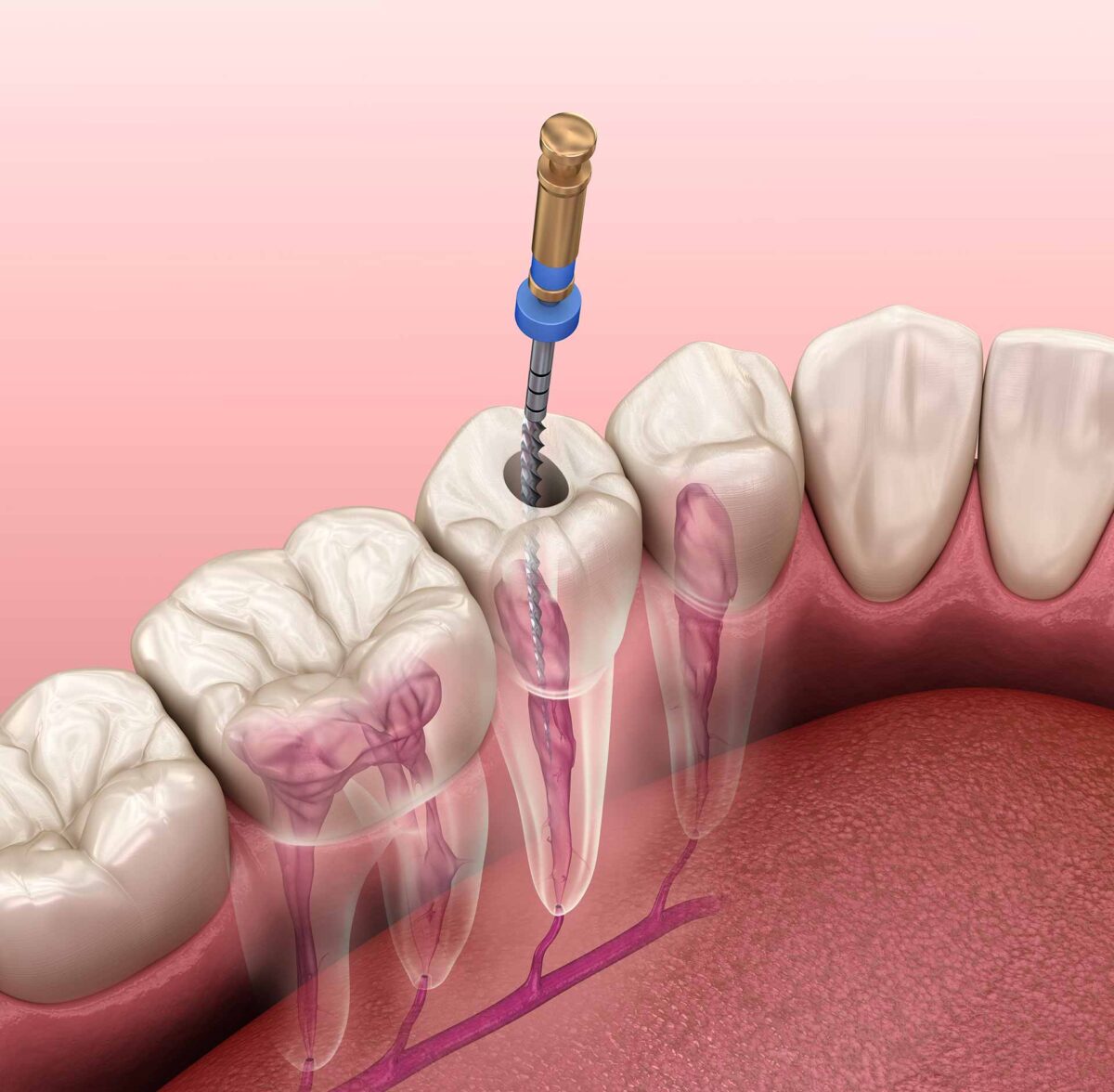
Root canal treatment aims to preserve and restore the function of a tooth that has already been severely damaged. Root canal treatment can be performed for several reasons. The most common reason is that the endodontia has become infected with bacteria in some way. This is when the bacteria that cause tooth decay spread so deep into the hard tissues of the tooth (enamel, dentin, and cementum) that they reach the endodontic cavity where the blood vessels and nerves that supply and bind the tooth are located.
Infection of the endodontic cavity can be caused by trauma, accidents or infection of the endodontia from the supporting structure of the tooth, the periodontium. Inflammation of the endodontic cavity can develop suddenly with a lot of pain but it can also occur slowly over years without symptoms or pain. The inflammation that develops eventually causes the tooth to die. This means that the blood supply to the tooth and its attachment to the root is cut off.
The advanced inflammation spreads first from the endodontia towards the roots of the tooth, then into the bone and the supporting structure of the tooth leading to a severe inflammatory condition that can eventually cause tooth loss. Therefore the main goal of root canal therapy is to eliminate the inflammation in the roots of the tooth and the bone and periodontium around the roots, and to prevent it from re-inflaming, thus saving the tooth.
